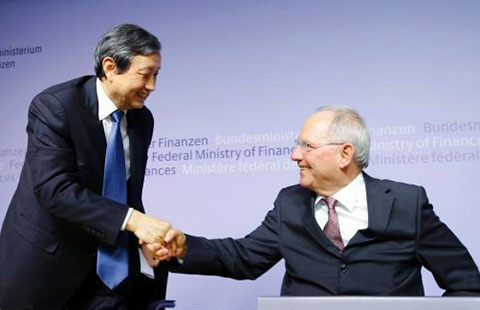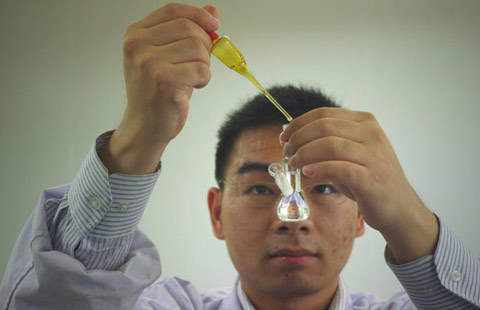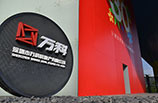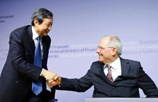Henkel sees "made in China 2015" a major area to contribute in
(chinadaily.com.cn) Updated: 2015-03-13 17:32Editor's note: With the annual sessions of the National People's Congress and the National Committee of the Chinese People's Political Consultative Conference ending with a call to adapt to "new normal", chinadaily.com.cn sat down with global business leaders to get their views on the reform process and lowering of the growth target.
Here are the excerpts of Dr. Christian Kirsten, Corporate Senior Vice President, Asia-Pacific President & Global Head of Transport & Metal of Henkel Adhesive Technologies.
|
 |
|
Dr. Christian Kirsten |
In this year's China Government Work Report, we're delighted to see the progress made in economic structure upgrading and also with the environmental issues addressed by the energy intensity cut of 4.8%, the biggest reduction made in recent years. Additionally, we identified "Made in China 2025" as an important new term raised in the report for the first time. We view this as a government initiative to further industrial structural advancement and drive sustainable economic development. Henkel is the market leader in adhesive technologies, which is a critical component of the manufacturing assembly process, especially in new materials adoption for next generation technology. That's why we see "Made in China 2025" as a major area in which we can further contribute towards enabling every possibility in China's industrial elevation.
In the Government Work Report, Premier Li Keqiang said that the nation's economic growth rate would be adjusted to 7 percent. Do you think that your company should modify its development strategy in China?
Henkel has been active in China for almost 30 years, with the market now becoming the world's second largest for our adhesive technologies business and also standing as our Asia-Pacific headquarter. For 2014, Henkel has grown sales organically by 8.2% globally, with our results especially driven by impressive double digit growth in China.
We see the lowering of the overall growth target to 7% as a demonstration of the Chinese government's determination to maintain a medium-high-level growth rate, with more focus on promoting high quality, efficient and sustainable economic development in the long term. This growth target not only makes China remain one of the fastest growing economies globally. It also presents Henkel with great business opportunities to address China's urgent development needs and to increase local customers' industry competitiveness in terms of higher efficiency, lower costs and more innovative possibilities through our leading adhesives solutions. We remain confident in China's economy and will continue to invest in the country.
Amid the global economic slowdown, especially in developed economies, and China's economic adjustment, what is your greatest concern about your company's China operations?
As a result of Henkel adhesive technologies multiple applications in various manufacturing and consumer goods industries, it's easier for us to keep a balanced business portfolio. Also thanks to our strong and broad global presence, it has been easier for us to manage through economic downturns. Although we see developed market economies situations remaining challenging, Henkel delivered very strong organic growth in emerging markets in 2014.
As mentioned in the Government Work Report, China will further promote sustainable urbanization, strengthen infrastructure connectivity in the region, and increase per capita disposable income to nurture a growing middle class. And we see significant market opportunities to tap into these trends and policies with our deep involvement in China's high-speed train, aircraft programs, light weight automotive initiatives and new energy vehicle manufacturing, LED lighting and consumer industries, among others.
Which aspect of China's social and economic reforms should be improved in order to enhance the investment environment to attract more foreign companies?
On the one hand, the Chinese government for many years has made continuous effort to deepen market reforms and open up to maintain China at the top of the list for foreign investment. And more initiatives to improve the foreign investment regulatory system and laws, and remove restrictions on investment areas, will really help build a more transparent and fair business environment.
On the other hand, Henkel, as an innovation-driven company, believes that China's intellectual property protection environment still remains challenging. Legislative and law enforcement improvements in this area are crucial to attracting foreign investment to bring in high-end technologies to facilitate development of China's innovative capabilities.
Do you think your company will develop faster in China than the previous year in terms of growth rate or market penetration?
We have a high level of confidence in China's medium-to-high level of economic growth in the long term. And China will also serve as the business driver for Henkel in the Asia-Pacific region. We foresee continuous growth in the Asia-Pacific region overall, with China sales maintaining its strong growth. Under this backdrop, Henkel has continued investing to increase R&D strength and production capacity in China by establishing the world's largest adhesives plant, the Dragon Plant, and the Henkel Display Center, in China. With increasing market demand for high technology manufacturing and premium consumer products, we're expecting higher market penetration and closer cooperation with local industrial customers.
- Israel requests to join Asian Infrastructure Investment Bank
- Chinese stocks rebound on April 1
- China, the West in Africa: more room for cooperation than competition
- Nanjing cuts taxi franchise fees
- Air China increases flights to Milan, Paris
- JD.com raises delivery charges
- Veteran corporate strategist upbeat about China economy
- L'Oreal China sales revenue up 7.7% in 2014

















